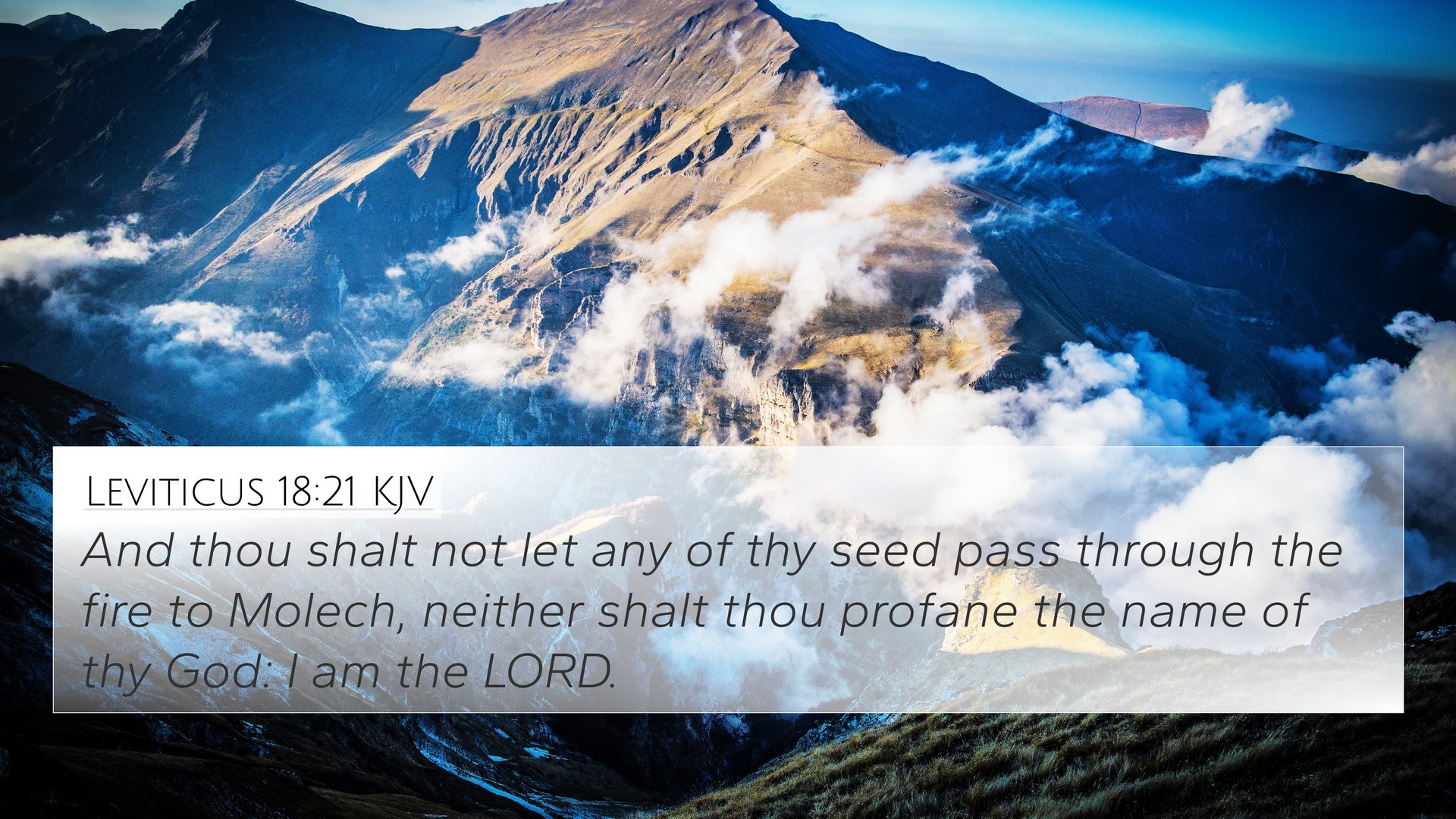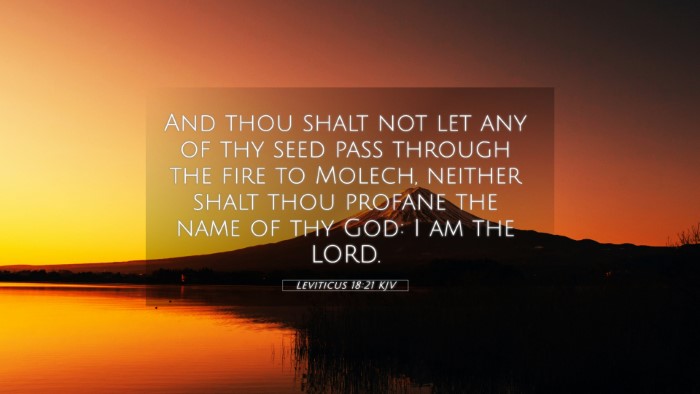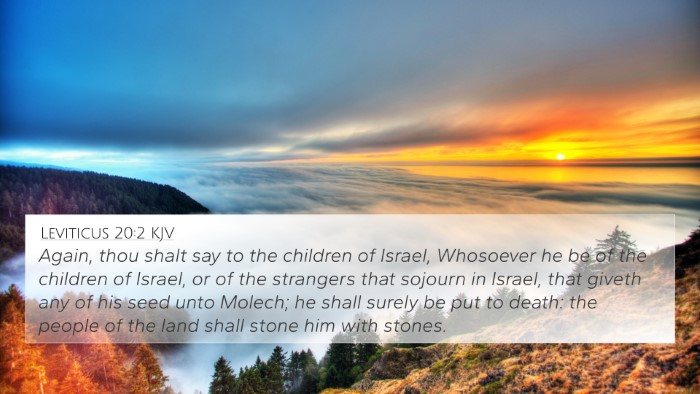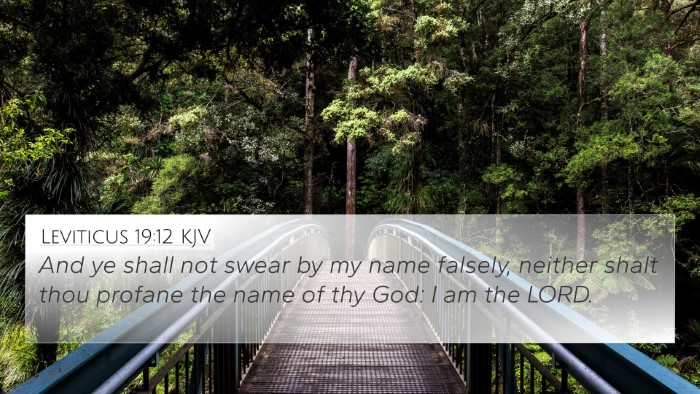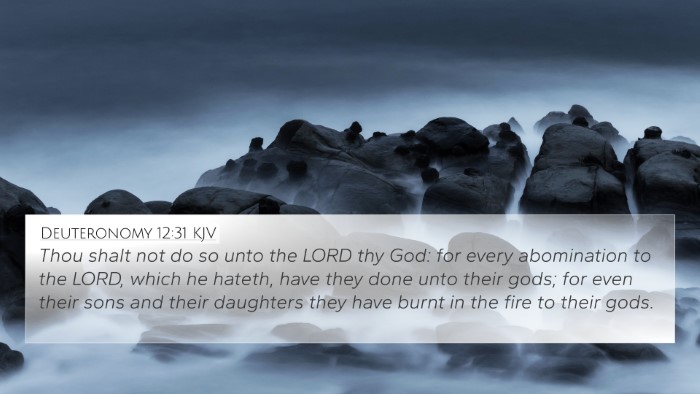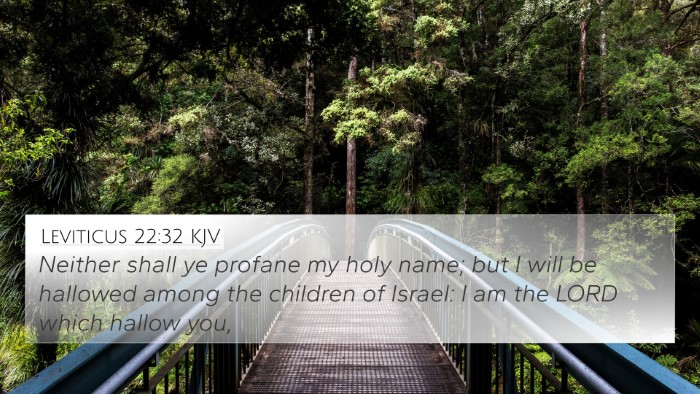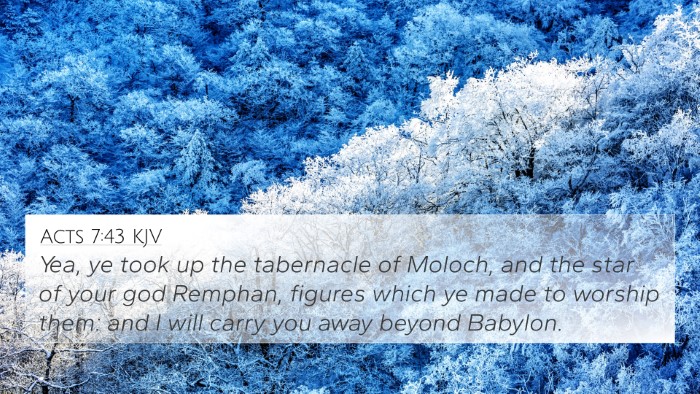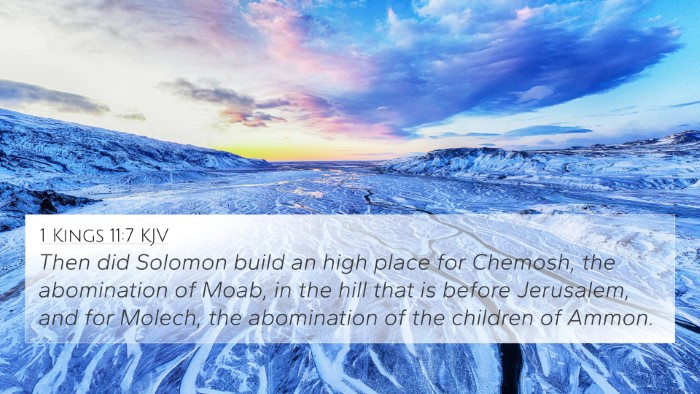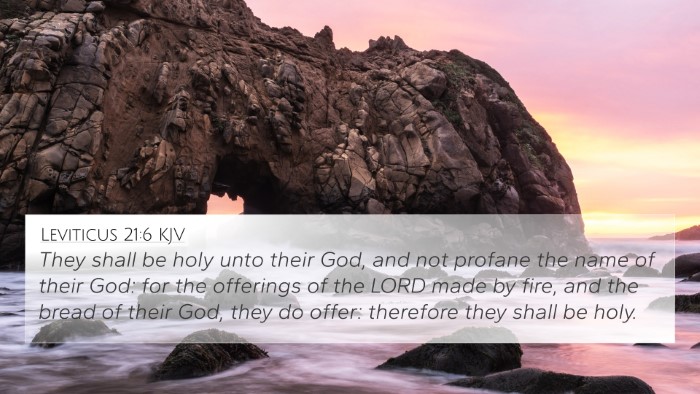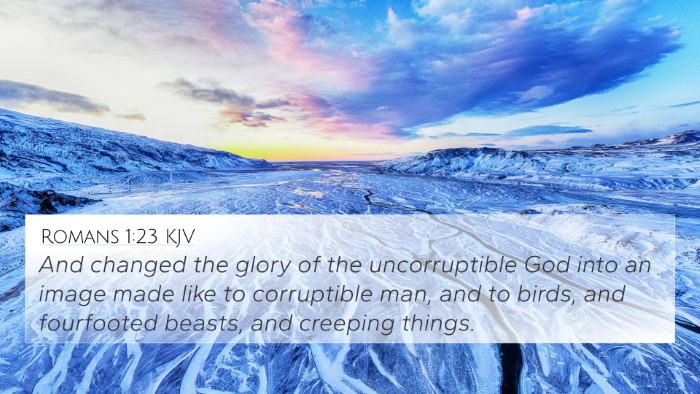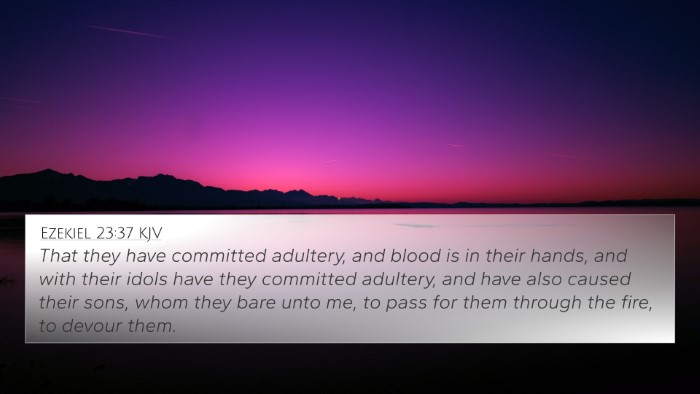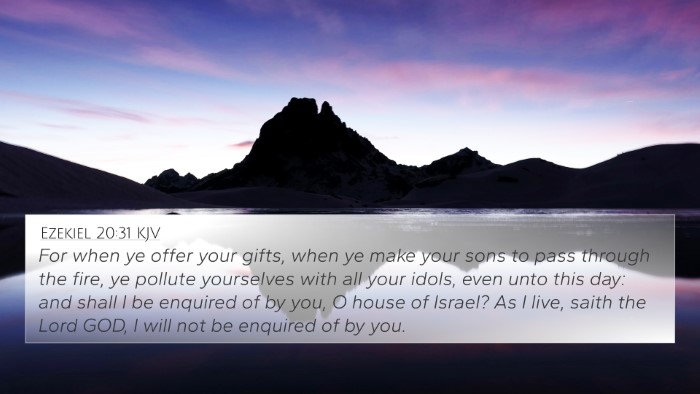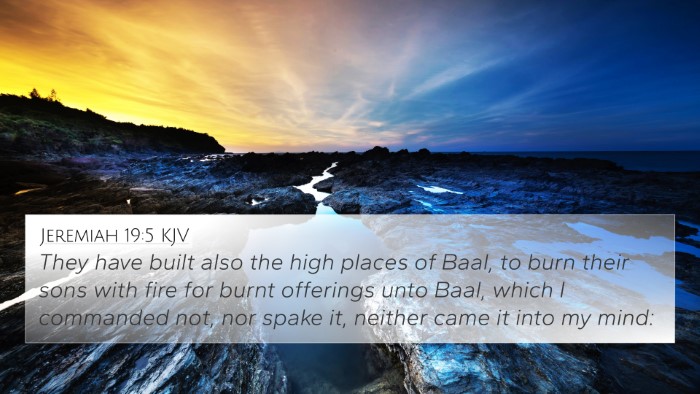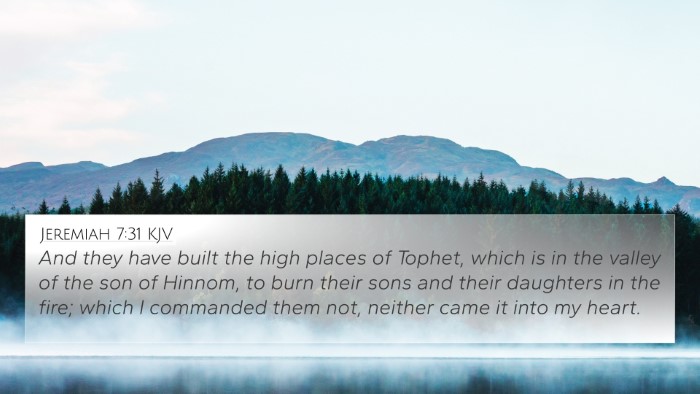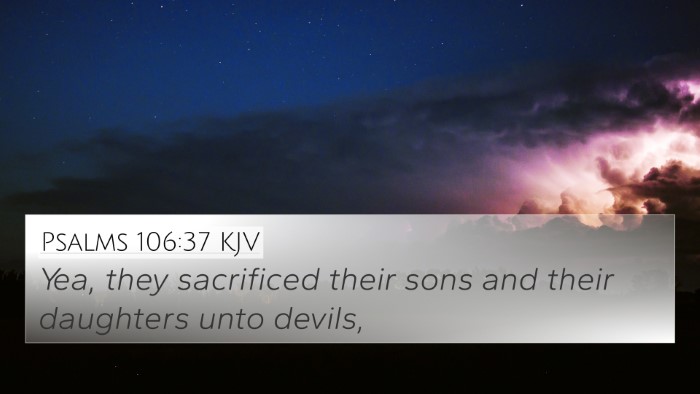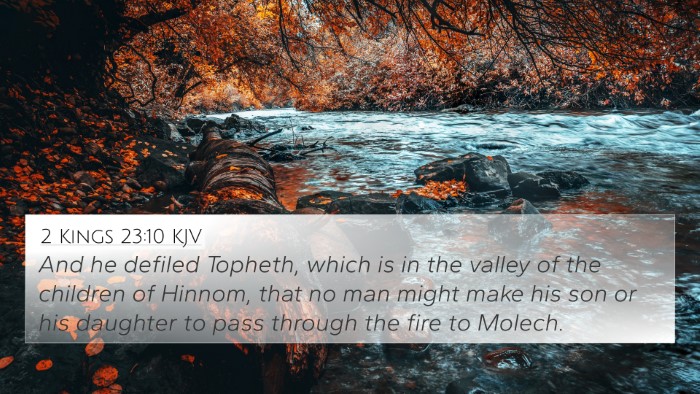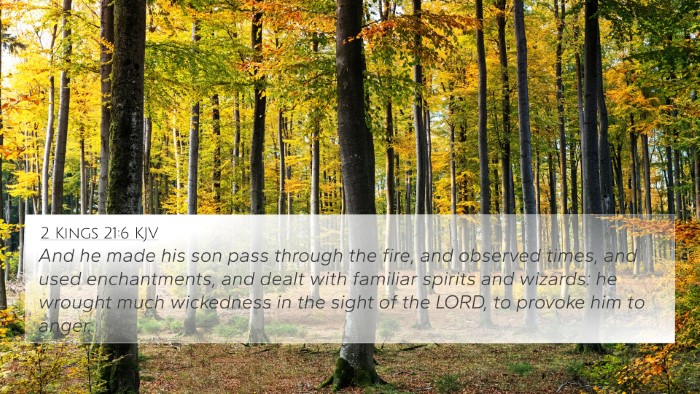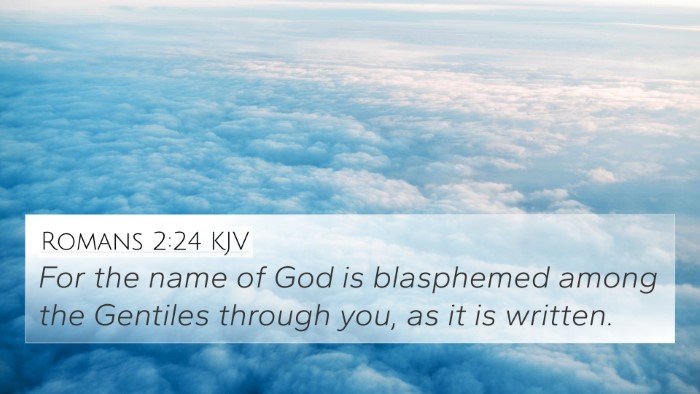Understanding Leviticus 18:21
Leviticus 18:21 states: "And thou shalt not let any of thy seed pass through the fire to Molech, neither shalt thou profane the name of thy God: I am the LORD."
This verse holds significant meaning in the context of ancient Israelite law and the theological foundation of the moral and ethical principles that governed the people of Israel.
Summary of Meaning
The command not to allow one's offspring to pass through the fire to Molech highlights a profound prohibition against idol worship and practices that were deemed abominable by the LORD. This passage emphasizes the degree of devotion expected from the Israelites and reinforces the importance of God's holiness and the sanctity of life.
-
Rejection of Molech Worship: Molech was a Canaanite deity associated with child sacrifice. This command directly prohibits such practices among the Israelites.
-
Divine Authority: The phrase "I am the LORD" serves as an affirmation of God's authority over Israel and underscores His right to establish laws that the people must follow.
-
Preservation of Purity: Adhering to these laws was crucial for maintaining the spiritual and communal purity of Israel, setting them apart from surrounding nations.
Cross-References
Understanding Leviticus 18:21 also requires an exploration of various passages that share similar themes or prohibitions. Below are relevant cross-references:
- Deuteronomy 12:31 - Prohibition against child sacrifice and detestations.
- Jeremiah 7:31 - A condemnation of child sacrifices to Molech.
- Ezekiel 20:26 - Mention of God allowing dishonorable practices due to Israel's rebellion.
- Leviticus 20:2-5 - Severe penalties for those who engage in Molech worship.
- 2 Kings 23:10 - King Josiah's reforms against Molech worship in Judah.
- Psalm 106:37-38 - A historical account of Israel sacrificing their children to idols.
- Acts 7:43 - A reference to the worship of Molech and the consequences faced by Israel.
Insights from Public Domain Commentaries
Matthew Henry
Matthew Henry emphasizes that this injunction showcases God's jealousy over His name and the longing for His people to serve Him alone. He argues that the prohibition against passing children through the fire illustrates the severe consequences of turning to false idols and the protection that God desires for the sanctity of life.
Albert Barnes
Albert Barnes points out that this command highlights not just a prohibition but also serves as a reminder of the covenant identity of Israel. He notes that failing to adhere to this command brings dishonor to God's name, and thus, this verse emphasizes the collective responsibility of the community to uphold God's standards.
Adam Clarke
Adam Clarke provides historical context, noting that worship of Molech was prevalent in surrounding cultures. He argues this command reflects God's desire to maintain Israel's distinct identity, urging them to avoid practices that lead away from divine instruction and towards spiritual corruption.
Thematic Connections in Scripture
Leviticus 18:21 opens up a thematic dialogue throughout Scripture around sacrifice, worship, and fidelity to God. It serves as a starting point for deeper explorations into the lengths God goes to in protecting His people from the harm that arises from pagan practices.
Themes of sacrifice and worship are prominent throughout both the Old and New Testaments. Believers are called to offer themselves as living sacrifices (Romans 12:1) in stark contrast to the practices of child sacrifice mentioned in Leviticus.
Comparative Bible Verse Analysis
The analysis of Leviticus 18:21 brings forward an essential question regarding the relationship between Old Testament laws and New Testament teachings. For instance, the transformational aspect of sacrifice in the New Testament is encapsulated in Christ's ultimate sacrifice, showcasing a shift from an obligation to a relationship grounded in love and faith. This creates a dialogic reading of Scripture, linking sanctity with redemption.
Conclusion
In summary, Leviticus 18:21 serves as a powerful reminder of the importance of fidelity to God, the sanctity of human life, and the dangers of succumbing to cultural pressures to worship false gods. It also presents a rich field for cross-referencing and further exploration both thematically and contextually within the scripture.
Upcoming Studies and Resources
For those interested in deeper studies of Biblical cross-referencing, further resources such as Bible concordances, cross-reference guides, and thematic studies are invaluable. Engaging with tools for Bible cross-referencing can enhance the understanding of complex relationships between Biblical texts and aid in sermon preparation or personal study.
By identifying connections between verses and studying thematic implications, believers can gain a richer comprehension of the Scriptures and their applications for life today.
